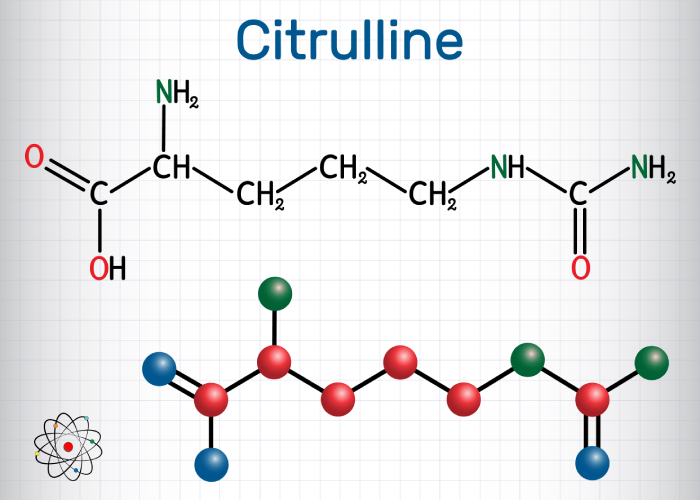Understanding Magnesium Supplements: An Overview
The Importance of Magnesium in Human Health
Magnesium is an essential mineral that plays a crucial role in over 300 enzymatic reactions in the human body. From energy production to muscle function, this mineral is vital for maintaining optimal health. When considering supplementation, the debate between magnesium glycinate vs magnesium citrate often arises, as these are two of the most popular forms available.
Different Forms of Magnesium Explained
The effectiveness of magnesium supplementation largely depends on the form you choose. Today’s market offers various options, with magnesium glycinate vs magnesium citrate being among the most discussed choices. Each form has unique properties that affect its absorption and therapeutic applications.
Bioavailability and Absorption Rates
When comparing magnesium glycinate vs magnesium citrate, bioavailability becomes a crucial factor. Bioavailability refers to how much of the supplement your body can actually absorb and utilize effectively.

What is Magnesium Glycinate?
Chemical Structure and Properties
Magnesium glycinate, also known as magnesium bisglycinate, is formed by combining magnesium with glycine, an amino acid. This chelated form means the magnesium is bound to glycine molecules, creating a stable compound that’s gentle on the digestive system. When discussing magnesium bisglycinate vs magnesium glycinate, it’s important to note that these terms essentially refer to the same compound.
Manufacturing Process and Quality Standards
The production of pure magnesium glycinate involves a precise chelation process. High-quality chelated magnesium glycinate undergoes strict quality control measures to ensure purity and potency. Manufacturers must adhere to Good Manufacturing Practice (GMP) standards to produce consistent, high-quality supplements.
Available Forms (Powder, Gummies, Tablets)
Magnesium glycinate comes in various forms to suit different preferences. Magnesium glycinate powder offers flexibility in dosing and is easily mixed with liquids. For those who prefer more palatable options, magnesium glycinate gummies provide a convenient alternative. Traditional tablets and capsules remain popular choices, often delivering standard doses like magnesium glycinate 400 mg per serving.
Deep Dive into Magnesium Citrate
Composition and Properties
When evaluating magnesium citrate or glycinate for supplementation, understanding their fundamental differences is crucial. Magnesium citrate combines magnesium with citric acid, creating a compound with different properties than glycinate. This combination results in a supplement that’s highly soluble and well-absorbed, though it may have different effects on the digestive system compared to glycinate.
Common Uses and Applications
While both forms serve as magnesium supplements, their applications can differ. When comparing magnesium glycinate vs magnesium citrate, it’s important to note that citrate is often chosen for its mild laxative effect, while glycinate is typically selected for its gentle nature and high absorption rate.
Absorption Characteristics
The absorption mechanisms of these two forms differ significantly. In the ongoing discussion of magnesium glycinate vs magnesium citrate, research indicates that glycinate’s amino acid binding may provide advantages for certain individuals, particularly those with sensitive digestive systems.
Magnesium Glycinate vs Magnesium Citrate: Key Differences
Absorption and Bioavailability Comparison
When comparing magnesium glycinate vs magnesium citrate, absorption rates play a crucial role in effectiveness. Research suggests that magnesium glycinate demonstrates superior bioavailability due to its amino acid chelation. This advantage becomes particularly evident when examining how the body processes pure magnesium glycinate compared to other forms.
Side Effects and Tolerability
The distinction between magnesium glycinate vs magnesium citrate becomes particularly important when considering digestive tolerance. While citrate can have a mild laxative effect, glycinate is generally well-tolerated even at higher doses. This makes chelated magnesium glycinate an excellent choice for those with sensitive digestive systems.
Cost and Value Analysis
When evaluating magnesium citrate or glycinate supplements, cost shouldn’t be the only consideration. While glycinate forms may be more expensive, their higher absorption rates often provide better value in terms of actual magnesium utilized by the body.
Other Popular Magnesium Forms Compared
Magnesium Threonate vs Glycinate
The comparison of magnesium glycinate vs magnesium l-threonate has gained attention in recent years. While both forms are well-absorbed, magnesium l-threonate vs magnesium glycinate studies suggest different advantages. Threonate is often praised for its potential cognitive benefits, while glycinate excels in general supplementation and sleep support.
Magnesium Oxide vs Glycinate
When examining magnesium oxide vs magnesium glycinate, the differences become stark. Magnesium oxide vs glycinate absorption rates show that glycinate is significantly better absorbed. This is why many healthcare practitioners recommend switching from oxide to glycinate forms for better results.
Magnesium Bisglycinate Considerations
The comparison of magnesium bisglycinate vs glycinate often causes confusion. To clarify, magnesium bisglycinate and magnesium glycinate are essentially the same compound, with “bis” indicating that two glycine molecules are attached to each magnesium atom.
Benefits of Magnesium Glycinate
Sleep and Relaxation
Among the various forms available, magnesium glycinate vs magnesium citrate studies often highlight glycinate’s superior benefits for sleep quality. The glycine component may enhance these calming effects, making it a popular choice for evening supplementation.
Muscle Function
Athletes and fitness enthusiasts often debate magnesium glycinate vs magnesium citrate for muscle support. Magnesium glycinate powder has gained popularity in sports nutrition due to its high absorption rate and potential to support muscle recovery and function.
Mental Health Support
The role of magnesium in mental health has led to increased interest in comparing magnesium glycinate vs magnesium threonate for cognitive and emotional support. While both forms show promise, glycinate’s combination with glycine may offer additional calming benefits.
Dosage Guidelines and Recommendations
Standard Dosage Ranges
When considering magnesium glycinate vs magnesium citrate supplementation, proper dosing is crucial for optimal results. The typical recommendation for magnesium glycinate 400 mg supplements aligns with general magnesium requirements. However, individual needs may vary based on several factors, including age, health status, and specific conditions. Healthcare providers often adjust dosages when comparing magnesium glycinate vs magnesium citrate for particular health concerns.
Research indicates that the body can typically tolerate higher doses of magnesium glycinate compared to magnesium citrate due to its gentler nature on the digestive system. Pure magnesium glycinate supplements often come in various strengths, ranging from 100mg to 400mg of elemental magnesium per serving. When transitioning from magnesium citrate or glycinate to a different form, it’s essential to adjust dosages accordingly.
Timing and Administration
The timing of magnesium supplementation can significantly impact its effectiveness. When evaluating magnesium glycinate vs magnesium citrate, timing considerations may differ. For optimal absorption, magnesium glycinate powder or tablets are often recommended to be taken with meals, divided into two or three doses throughout the day. Some practitioners suggest taking chelated magnesium glycinate in the evening due to its potential sleep-promoting benefits.
For those using magnesium glycinate gummies or other forms, consistent timing helps maintain steady magnesium levels in the body. The comparison of magnesium glycinate vs magnesium citrate absorption patterns suggests that glycinate may offer more flexibility in timing due to its superior absorption profile.
Special Considerations
Certain populations require special attention when supplementing with magnesium. The debate between magnesium glycinate vs magnesium l-threonate becomes particularly relevant for older adults concerned about cognitive function. Athletes and physically active individuals might need to adjust their dosing schedule, especially when using magnesium glycinate powder around workout times.
Who Should Take Magnesium Glycinate?
Target Demographics
Understanding who benefits most from magnesium glycinate vs magnesium citrate supplementation helps in making informed choices. Several populations may particularly benefit from magnesium glycinate:
- Individuals with sensitive digestive systems who find magnesium citrate too stimulating
- People seeking better sleep quality and stress management
- Athletes requiring enhanced muscle recovery
- Those with demonstrated magnesium deficiency
- Individuals taking medications that may deplete magnesium levels
When comparing magnesium bisglycinate vs magnesium glycinate for specific populations, the identical nature of these compounds means the choice often comes down to brand preference and formulation quality.
Health Conditions
Different health conditions may influence the choice between magnesium glycinate vs magnesium threonate or other forms. Research suggests that magnesium glycinate may be particularly beneficial for:
- Anxiety and mood disorders
- Sleep disturbances
- Muscle tension and cramping
- Fibromyalgia
- Headaches and migraines
- Blood sugar management
The comparison of magnesium oxide vs glycinate becomes especially relevant here, as glycinate’s superior absorption may provide better outcomes for these conditions.
Contraindications
While comparing magnesium glycinate vs magnesium citrate safety profiles, both forms are generally well-tolerated. However, certain individuals should exercise caution or seek medical advice before supplementation:
- Those with kidney disease
- People taking certain medications that may interact with magnesium
- Individuals with heart conditions
- Those prone to low blood pressure
- People with myasthenia gravis
Healthcare providers often weigh the benefits of magnesium glycinate vs magnesium l-threonate when considering contraindications and potential interactions with existing medications or conditions.

Product Forms and Selection Guide
Pure Magnesium Glycinate Options
When evaluating magnesium glycinate vs magnesium citrate supplements, the purity and form of the product deserve careful consideration. Pure magnesium glycinate comes in several forms, each with distinct advantages. Magnesium glycinate powder offers flexibility in dosing and can be easily mixed with liquids, making it an excellent choice for those who prefer customizable serving sizes. When comparing magnesium glycinate vs magnesium citrate absorption rates in powder form, glycinate typically shows superior bioavailability.
Chelated Forms
Chelated magnesium glycinate represents a significant advancement in magnesium supplementation. The chelation process, which binds magnesium to glycine molecules, creates a stable compound that’s highly absorbable. When examining magnesium bisglycinate vs magnesium glycinate products, consumers should understand that these terms refer to the same chelated form, though marketing terminology may differ between brands.
Combination Products
Some manufacturers offer combination products that may include multiple forms of magnesium or additional nutrients. While comparing magnesium glycinate vs magnesium citrate remains important, some products combine both forms to provide broader benefits. Additionally, magnesium glycinate gummies often include complementary ingredients for specific health goals, such as sleep support or stress management.
Safety and Side Effects
Common Side Effects
When discussing magnesium glycinate vs magnesium citrate side effects, glycinate generally shows a better tolerability profile. Unlike the potential laxative effects often experienced with citrate, pure magnesium glycinate rarely causes digestive discomfort. This advantage becomes particularly evident when comparing magnesium oxide vs magnesium glycinate, as oxide forms are known to have lower absorption rates and more frequent gastrointestinal side effects.
Drug Interactions
The choice between magnesium glycinate vs magnesium l-threonate or other forms becomes crucial when considering medication interactions. Magnesium supplements can interact with various medications, including:
- Antibiotics
- Blood pressure medications
- Diuretics
- Bisphosphonates
- Some diabetes medications
Healthcare providers must carefully evaluate magnesium citrate or glycinate supplementation in patients taking these medications, often recommending specific timing intervals between doses.
Precautions
While comparing magnesium glycinate vs magnesium threonate or other forms, certain precautions apply regardless of the chosen form. Individuals should:
- Start with lower doses and gradually increase as tolerated
- Monitor for any adverse reactions
- Be aware of total magnesium intake from all sources
- Consider potential interactions with existing health conditions
- Maintain consistent timing of supplementation
- Store supplements properly to maintain potency
FAQs About Magnesium Supplementation
Common questions regarding magnesium glycinate vs magnesium citrate supplementation include:
Q: Why choose magnesium glycinate over citrate?
A: The choice between magnesium glycinate vs magnesium citrate often depends on individual needs. Glycinate typically offers better absorption and fewer digestive side effects, making it ideal for those seeking long-term supplementation or those with sensitive stomachs.
Q: What’s the difference between magnesium bisglycinate and glycinate?
A: When comparing magnesium bisglycinate vs glycinate, they are essentially the same compound. The “bis” prefix simply indicates that two glycine molecules are bound to each magnesium atom.
Q: How does magnesium glycinate compare to other forms?
A: In comparisons of magnesium glycinate vs magnesium l-threonate and magnesium oxide vs glycinate, each form has unique properties. Glycinate excels in general supplementation and sleep support, while threonate may offer specific cognitive benefits, and oxide typically shows lower absorption rates.
Quality Considerations and Buying Guide
When selecting between magnesium glycinate vs magnesium citrate supplements, several quality factors deserve attention. Reputable manufacturers will provide detailed information about their:
- Third-party testing results
- Manufacturing standards (GMP certification)
- Sourcing of raw materials
- Specific formulation details
- Elemental magnesium content per serving
Look for supplements that clearly state whether they contain pure magnesium glycinate or if additional compounds are present. Quality chelated magnesium glycinate supplements should provide transparency about their chelation process and the form of magnesium used.
Consider these factors when evaluating supplements:
- Purity of ingredients
- Presence of unnecessary fillers or additives
- Quality of the chelation process
- Brand reputation and manufacturing standards
- Cost per serving of elemental magnesium
- Customer reviews and satisfaction rates
- Storage requirements and shelf life
- Packaging quality and environmental considerations
Conclusion: Making the Right Choice
The comparison of magnesium glycinate vs magnesium citrate ultimately comes down to individual needs, preferences, and health goals. Both forms have their place in supplementation, but glycinate often emerges as a superior choice for several reasons:
Superior Absorption:
- Better bioavailability compared to many other forms
- Gentle on the digestive system
- Consistent absorption rates
Versatility:
- Available in multiple forms (powder, capsules, gummies)
- Suitable for various health goals
- Flexible dosing options
Safety Profile:
- Well-tolerated by most individuals
- Fewer digestive side effects
- Suitable for long-term use
When making your final decision, consider:
- Your specific health goals and needs
- Any existing health conditions or medications
- Budget and value considerations
- Preferred form of supplementation
- Timing and convenience factors
- Professional healthcare recommendations
Remember that while supplementation can be beneficial, it should be part of a comprehensive approach to health that includes:
- A balanced, nutrient-rich diet
- Regular physical activity
- Adequate sleep and stress management
- Regular health check-ups
- Attention to overall lifestyle factors
For optimal results, consider working with a healthcare provider who can help monitor your magnesium levels and adjust supplementation as needed. They can help determine the most appropriate form and dosage for your specific situation, ensuring you receive maximum benefit from your supplementation regimen.
Through careful consideration of these factors and regular monitoring of your response to supplementation, you can make an informed decision about which magnesium form best suits your needs. Whether choosing magnesium glycinate powder for its versatility, magnesium glycinate gummies for convenience, or another form entirely, the key is to maintain consistency and pay attention to your body’s response.
This comprehensive guide aims to provide you with the knowledge needed to make an informed decision about magnesium supplementation. Remember that individual responses may vary, and what works best for one person may not be optimal for another. Stay informed, listen to your body, and adjust your supplementation strategy as needed to achieve your health goals.



